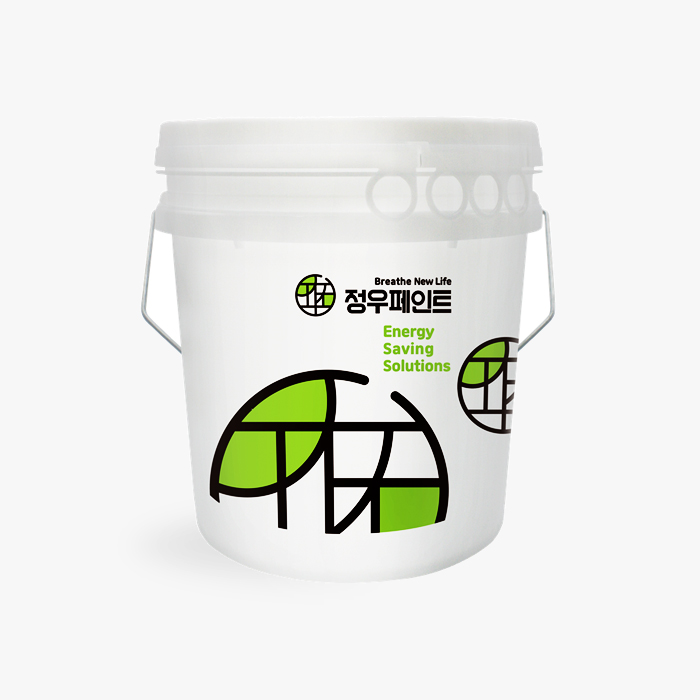Heat Reflective & Non-Flammable Paint

Heat Reflective & Non-Flammable Paint
19HRNF
Application
– Residential and commercial facilities such as houses, apartments, studio apartments, and plants
– Different kinds of commercial facilities such as plants and shopping complexes
– Outdoor facilities
– Different kinds of commercial facilities such as plants and shopping complexes
– Outdoor facilities
Product configuration
Heat Reflective & Non-Flammable Paint product is a complex functional paint with thermal barrier capability and non-combustible capability. It can be applied to indoor and outdoor facilities to block the sunlight and prevent fire outbreaks with reduced harmfulness and improved adhesion. It is a gloss aqueous top coating material with excellent durability, preventing yellowing and contamination.
Product characteristics
– With low generation of gas, it can minimize the damage caused by fire incidents.
– It has excellent adhesion and can be applied to different kinds of surfaces.
– It has reduced harmfulness by using odorless product free of heavy metal.
– It has excellent resistance to scratches, which is two times higher compared to general paint.
– It prevents yellowing and rusting.
– It has excellent adhesion and can be applied to different kinds of surfaces.
– It has reduced harmfulness by using odorless product free of heavy metal.
– It has excellent resistance to scratches, which is two times higher compared to general paint.
– It prevents yellowing and rusting.
Product characteristics
| Product volume | 18L | Tools | Airless, roller, brush | ||
| Color | White
**Mixing color is possible (contact manufacturer) |
Recommended dry membrane | 70㎛ /Only One coats | ||
| Gloss | Matte | Construction area | Approx. 70~75㎡ | ||
| Painting type | Liquid type | Theoretical painting area | 4.67㎡ /ℓ | ||
| Thinner | Water | Drying(20℃) | Touch dry | Hard dry | Recoat interval |
| Mixing ratio | Less than 10% | hours | 1hours | 2hours | 2hours |
How to use and caution
| How to use | – Painting condition is where ambient temperature is at 5~35℃ and humidity is at 80% or below. – Mix the paint sufficiently before using on construction. – After going through surface processing, apply paint so that primer can penetrate deeply into the painting surface. – After applying primer on the surface, dry for 4 hours at 20℃ and apply top coating twice. ** Aqueous paint can be used for mixing color. (basic color: white) **Minimum amount for mixing color is 50 packs or above. (pastel color is possible) |
|---|---|
| caution | – Concrete surface should be sufficiently cured (4 weeks or above at 20℃) and apply paint when pH is 8 ~ 9 or below and moisture content is 8% or below. – Aqueous paint should be stored in indoor areas (at room temperature of 5℃ or above) that can avoid direct light. – Crack area should be filled and surface should be flattened using filler after applying V cutting – If surface processing is insufficient, it might lead to poor adhesion and detachment of membrane. – In case of exceeding recommended amount (within 10%) of diluent (water), it might lead to reduction in material property. – In case of applying paint on the previous membrane, check for the suitability with previous membrane before using. – Color difference might occur on the product with same color and lot depending on the dilution ratio, painting device, and painting method, so check the color before painting. |

